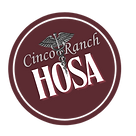
Emergency Medical Technician
Is this event right for you?
You might enjoy this event if you:
-
Are interested in high-level emergency medical care and trauma response.
-
Enjoy working as a team under pressure to provide life-saving interventions.
-
Want to explore careers in emergency medicine, paramedicine, or critical care.
-
Prefer a challenging mix of written testing and hands-on patient care scenarios.
-
Value precision, speed, and professional skills in pre-hospital care.
Event Details
Detail
Info
Emergency Preparedness Event
Team of 2 competitors
Written test – 50 multiple-choice questions, 60 minutes
Skills demonstration (scenario-based emergency care)
Round 1: 60 minutes
Round 2: 12 minutes (scenario and skill performance)
Highest Round 1 test score
Trauma care, patient assessment, medical emergencies, pediatrics, childbirth, BLS, and special EMS procedures
TYPE
FORMAT
ROUND 1
TIME LIMIT
TIE BREAKER
ROUND 2
FOCUS AREAS
Topics on the Test
1. Patient Assessment– 20%
2. Basic Life Support– 20%
3. Trauma– 16%
4. Medical Emergencies– 14%
5. Pediatrics and Childbirth– 16%
6. Environmental Emergencies– 10%
7. Special Situations– 4%
Study Materials & Practice
Key Official References:
-
Emergency Care and Transportation of the Sick and Injured – Jones & Bartlett Learning, latest edition
-
American Heart Association. BLS Provider Manual, latest edition
-
Limmer, Daniel. Emergency Care, Prentice Hall (Brady), latest edition
Event Day Checklist:
-
Photo ID for both rounds
-
Two #2 pencils (non-mechanical) with erasers
-
Manual watch with second hand (no smartwatches) – for vital signs
-
Responder Bag (team or individual) – must include:
-
Barrier supplies for each competitor (5 pairs non-latex gloves, 2 masks, 2 gowns)
-
Safety goggles / protective eyewear
-
6–10 sterile 4x4 dressings, roller gauze, adhesive tape, bandage scissors
-
Penlight, occlusive dressing, abdominal / trauma dressings
-
Stethoscope and BP cuff
-
Oral airway kit (sizes 0–6), BVM with oxygen tubing, non-rebreather mask
-
Pocket mask / face shield, 4 cravats, cell phone for simulated EMS call
-
Tourniquet – provided by HOSA or competitor’s own
-
Professional attire or official HOSA uniform (bonus points for correct dress)
-
Know the General Rules & Regulations
Tips from Previous Competitors
-
""
-
""
-
""